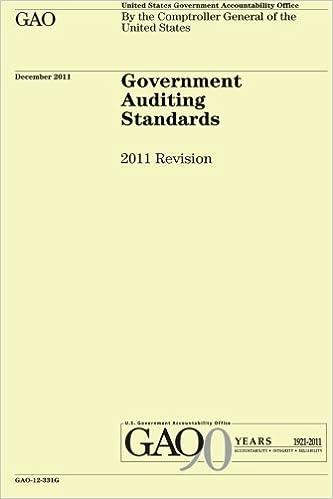Answered step by step
Verified Expert Solution
Question
1 Approved Answer
this is a case on that i need exart option which is correct go threw the case and then you can say the correct answer
this is a case on that i need exart option which is correct go threw the case and then you can say the correct answer the question is attached after the case.
Spartan Concrete Products, LLC v. Argos USVI, Corp. United States Court of Appeals for the Third Circuit 929 F. 3d 107 (2019)Case Background Spartan Concrete sold ready-mix concrete in St. Croix, Virgin Islands. It decided to take on the biggest seller of that product on St. Thomas, Heavy Materials. The two engaged in a price war for three years, incurring losses. Spartan gave up on St. Thomas and returned to focus on St. Croix.
Spartan then sued Argos, the company that provided cement to it and Heavy Materials. Spartan claimed Argos gave 10 percent volume discounts to Heavy Materials, a violation of the Robinson-Patman Act, causing it to lose money in its effort to enter the St. Thomas market. The district court held that Spartan failed to prove it suffered injury. Spartan appealed.
Case Decision Hardiman, Circuit Judge
* * *
To prove a violation of [Robinson-Patman], the plaintiff must show that:
(1)
sales were made to two different purchasers in interstate commerce;
(2)
the product sold was of the same grade and quality;
(3)
the defendant discriminated in price as between the two purchasers; and
(4)
the discrimination had a prohibited effect on competition.
After establishing a prima facie case for a violation, a plaintiff must satisfy 4 of the Clayton Actthe treble damages provisionto recover damages. To recover, the plaintiff must have proof of antitrust injurysome showing of actual injury attributable to something the antitrust laws were designed to prevent.
Here, the District Court found that Spartan established the first three elements of a violation. And because the Court assumed Spartan suffered a competitive injury (the fourth element), this appeal turns on whether Spartan satisfied the damages requirement by proving antitrust injury.
To establish antitrust injury, a plaintiff must prove a causal connection between the price discrimination and actual damage suffered. And although the proof requirements of section 4 are less than stringent, there must be some direct evidence of injury to support an award of damages.
Spartan relies on the testimony of two employees (Pede and Bressi)namely that price was an important factor in the jobs it receivedto conclude that customers chose to purchase from either Heavy Materials or Spartan primarily on the basis of price.
Although Pede insisted Spartan lost jobs to Heavy Materials because of the price difference, he conceded that he premised his testimony on an assumption. Pede admitted he could not point to any analysis he performed to verify that assertion.
Furthermore, the evidence at trial showed that Spartan lost sales and profits for reasons unrelated to the cement discount. [Heavy Materials manager] testified that Heavy Materials won the majority of the large commercial projects based on quality rather than price. And Pede acknowledged that Spartan lost profits because of its short-term plan of selling concrete at prices that were below its marginal cost. Finally, Spartan lost revenue when it wrote off more than $345,000 in bad debts from customers. All of this evidence breaks the causal connection required for antitrust injury by suggesting that these factorsrather than price discriminationcontributed to Spartans lost sales and profits.
Although it is undisputed that Argos gave Heavy Materials alone a 10 percent volume discount on concrete, Spartan has presented no evidence linking this discount to its inability to compete in, and its ultimate exit from, the St. Thomas market. Indeed, Spartan was able to compete with Heavy Materials for three years. And during that time, it not only lowered its retail prices, but also began a price war in an effort to drive Heavy Materials from St. Thomas. This plan worked for a while, as Spartan took business away from Heavy Materials and achieved a nearly 30 percent share of the St. Thomas retail ready-mix concrete market. Thus, Spartan cannot show antitrust injury merely by its closure on St. Thomas, especially because it exited the market after agreeing with Heavy Materials to divide the islands.
Affirmed.
--Spartan Concrete tried to enter the concrete market against Heavy Materials in St. Thomas. After a three-year price war, Spartan gave up and sued Argos, the cement supplier to both companies. Spartan claimed Argos gave 10 percent volume discounts to Heavy Materials, which violated the Robinson-Patman Act. The court ruled that:
Spartan failed to show a conspiracy between Argos and Heavy Materials.
Spartan showed "convincing evidence" a discount existed so it would prevail.
Spartan had sufficient evidence of collusion between Heavy Materials and Argos so it could prevail.
Spartan failed to show that the discount caused its failure in that market.
it a business law question.
Step by Step Solution
There are 3 Steps involved in it
Step: 1

Get Instant Access to Expert-Tailored Solutions
See step-by-step solutions with expert insights and AI powered tools for academic success
Step: 2

Step: 3

Ace Your Homework with AI
Get the answers you need in no time with our AI-driven, step-by-step assistance
Get Started


